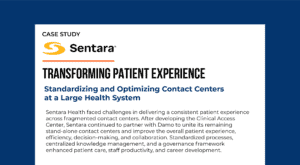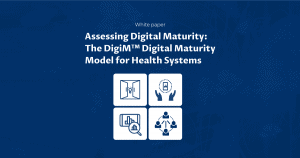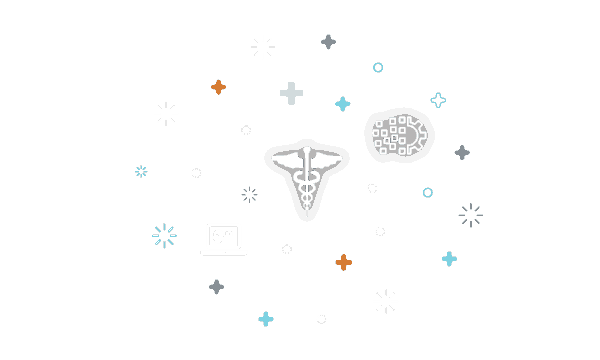Keeping Humans in the Loop: How Pager Health Is Scaling GenAI Responsibly

Generative AI is rapidly transforming the healthcare landscape, offering new possibilities for care delivery, patient engagement, and operational efficiency. Yet as organizations rush to adopt AI solutions, one healthcare innovator is reminding the industry that trust, responsibility, and human oversight must remain central to any implementation strategy.
In the recent episode of The Big Unlock podcast, Rita Sharma, Chief Product Officer at Pager Health, shared how her team is scaling GenAI thoughtfully—with an approach grounded in data transparency, human-centered design, and trust-building with both clinical teams and healthcare consumers.
Listen to the full conversation
A Strong Foundation: Data Transparency and Governance
Pager Health’s GenAI journey commenced not with high-visibility pilots or rapid experimentation, but with a deliberate focus on foundational strategy and internal preparedness. Instead, the first step was inward-facing: establishing a clear and rigorous framework for data usage, transparency, and security.
“We had to make sure that we had a really strong framework internally for how we think about data usage, transparency, and security before we started scaling GenAI use cases externally,” Rita explained.
This internal discipline gave Pager the confidence—and credibility—to move quickly and responsibly. By investing early in robust data governance, the company signaled to health plan partners, providers, and regulators that it was serious about ethical AI practices. That foundation helped accelerate deployment later, because core trust and compliance concerns were already addressed.
Consumers Are Ready—But Trust Is Key
Despite initial skepticism in the healthcare industry, Rita sees a clear shift in how people view AI—especially the end users. “What I think is so exciting,” she said, “is that the consumer has said, I trust AI.”
According to Pager Health’s recent national consumer experience survey, more patients than ever are willing to engage with AI-powered tools to manage their health. Part of that trust, Rita noted, stems from increased familiarity—people use AI daily in search engines, smart assistants, and apps, so the idea of AI in healthcare no longer feels foreign.
But growing trust also depends on how the technology is used. Patients are more likely to embrace AI when it feels empathetic, accurate, and useful—not abstract or robotic. That’s why Pager’s approach is built around intelligent AI agents that understand user context, act with empathy, and support care decisions in collaboration with human providers.
Keeping Humans in the Loop
One of Pager’s core philosophies is that AI should never operate in isolation—especially when it comes to healthcare decisions. Human involvement remains essential to creating safe, trustworthy, and effective care experiences.
“We have to keep the humans in the loop… it’s going to be super, super, super helpful to us because we can start to build more and more trust with the end consumer,” Rita emphasized.
Rather than viewing AI as a replacement for clinicians or care teams, Pager uses GenAI to extend human capabilities. Whether it’s simplifying patient navigation, providing clinical summaries, or managing complex workflows, AI at Pager acts as an enabler—not a substitute.
This human-in-the-loop model doesn’t just ensure safety and accuracy. It also builds confidence with patients, who are far more likely to embrace technology when they know a real person is still overseeing their care.
Balancing Efficiency with Oversight
Pager’s GenAI innovations are impressive—from AI-powered navigation tools for health plan members to ambient technologies supporting provider workflows. But the company isn’t chasing automation for its own sake. The goal is to achieve scale and speed without sacrificing accountability or empathy.
“We can make huge progress if we blend efficiency with the right level of human oversight,” Rita explained. “While GenAI isn’t brand-new, the way we’re applying it in healthcare is—and that demands a thoughtful, deliberate approach.”
This mindset is helping Pager scale rapidly without losing sight of the human relationships that define good care. By augmenting clinical teams instead of replacing them, Pager makes it possible to support larger populations without compromising quality or trust.
What This Means for the Future of AI in Healthcare
Pager Health’s story highlights a crucial lesson for the healthcare industry: GenAI’s success doesn’t hinge on algorithms alone—it depends on how responsibly we design, deploy, and govern these tools.
By investing early in data governance, keeping humans central to decision-making, and listening to consumer sentiment, Pager is showing that it’s possible to harness the power of AI while preserving trust and empathy.
The industry is watching closely. As more health plans, providers, and digital health startups consider scaling their own GenAI initiatives, Pager’s approach offers a replicable model—one that balances innovation with integrity.
Why Trust and Transparency Must Lead the GenAI Revolution
Pager Health’s journey offers a valuable blueprint for healthcare organizations navigating the GenAI frontier. It’s a reminder that success with AI doesn’t hinge on flashy use cases or cutting-edge algorithms—it depends on how responsibly we design, deploy, and govern these tools.
By building a strong internal framework, prioritizing human oversight, and listening to what patients actually want, Pager is showing how GenAI can be scaled without sacrificing safety, empathy, or trust. As Rita Sharma put it, “If we keep humans in the loop and focus on efficiency, we’re going to see amazing inroads with GenAI.”
As the healthcare industry continues to explore AI integration, Pager’s example is both inspiring and instructive. GenAI has the potential to be a powerful force for good—but only if we remember that at its best, technology should amplify human care, not replace it.
A Pediatric-Centric Approach to AI
Pediatric healthcare comes with its own unique challenges—fewer available data points, smaller population sizes, and higher sensitivities around communication and consent. This makes the responsible use of AI even more critical.
Dr. Morse noted that solutions must be designed with children and families in mind, not simply adapted from adult care settings. Whether deploying ambient tools, summarizing clinical notes, or streamlining administrative workflows, every use case must prioritize trust, safety, and patient experience.














